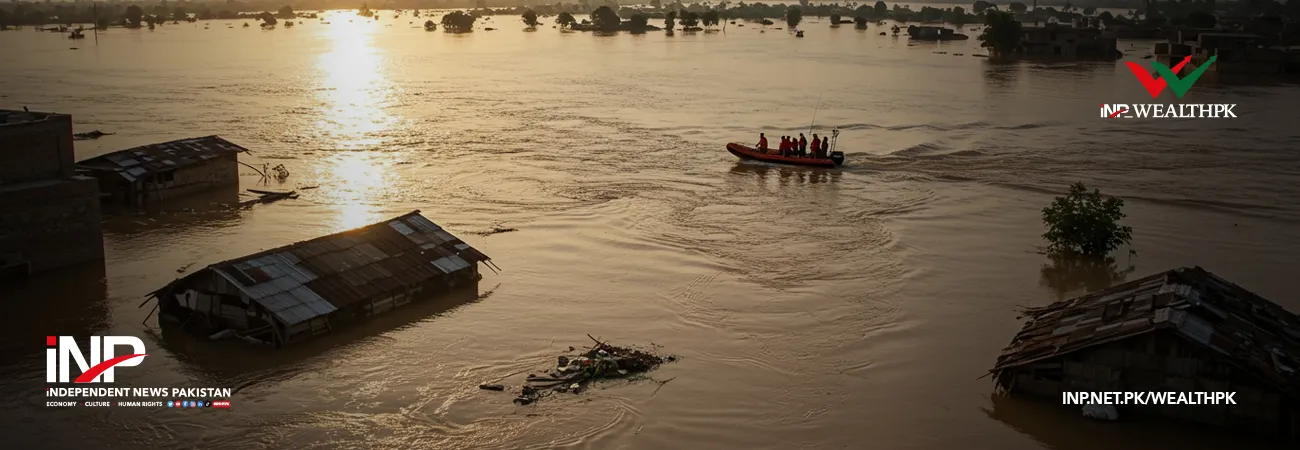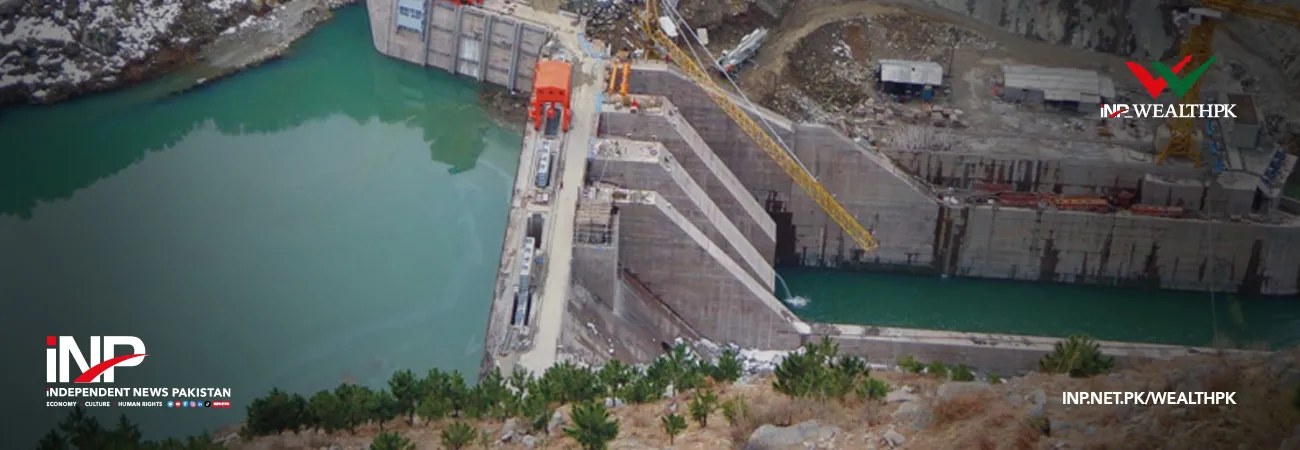آئی این پی ویلتھ پی کے
Azeem Ahmed Khan
After suffering economic losses of Rs822 billion from the 2025 floods, Pakistan has announced plans to adopt a comprehensive, multi-phase climate resilience strategy focusing on reconstruction, disaster preparedness, and long-term adaptation, according to the Preliminary Assessment of Flood Damages Report.

The Ministry of Planning, Development and Special Initiatives emphasized that the disaster underscores the urgency of building a climate-smart economy and strengthening early-warning systems. “The increasing frequency of extreme weather events highlights the need to invest in climate-resilient infrastructure and robust early-warning systems,” the report stated.
The proposed framework divides recovery into short-, medium-, and long-term phases. The ministry said reconstruction priorities would include restoring destroyed roads, bridges, and housing, while integrating disaster-resilient designs. It also called for rapid assessments to guide compensation, provision of seeds and fertilizers, and resowing of crops to stabilize rural livelihoods.
The report projected that rebuilding housing and physical infrastructure could take up to a decade, demanding sustained financing and international cooperation. It recommended mobilizing long-term international climate funds to support adaptation projects and large-scale flood protection.
The report further urged strengthening domestic financing vehicles for capital losses and unemployment caused by natural disasters. The document stressed that labor-market rehabilitation and planned migration policies were essential to prevent urban overcrowding and poverty escalation.
Highlighting Pakistan’s repeated exposure to catastrophic floods despite minimal contribution to global emissions, the report described the 2025 deluge as “a stark manifestation of climate injustice.” Pakistan, it noted, contributes less than one percent to global greenhouse gases but remains among the world’s most climate-vulnerable nations.
The Planning Ministry called for establishing integrated flood-risk management systems, including river zoning, watershed protection, and data-driven forecasting. It also emphasized collaboration between federal and provincial governments, civil society, and private investors in executing climate-resilient infrastructure projects.
Officials said the government intends to align the post-flood reconstruction plan with Sustainable Development Goals (SDGs) and the National Climate Adaptation Policy. The approach will focus not merely on restoring pre-flood conditions but creating stronger systems capable of withstanding future shocks.
“This disaster must become a turning point,” the report concluded. “Pakistan’s path forward lies in building back better—smarter, stronger, and more resilient.” The ministry called for national unity and global solidarity to guide the country’s recovery into benchmark for climate-conscious economic transformation.
Credit: INP-WealthPk











